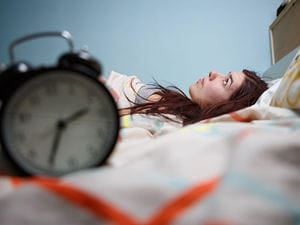
We all dread the alarm clock. It impedes on our dreams and our sanity. This love and hate relationship dates back to the 1300 when bells woke up entire communities and could be heard all over the land. Then came the personal mechanical clock, which was invented by Levi Hutchins in 1787 to help him wake up by 4 a.m., but the American never patented or wanted to sell his invention. In 1847 a Frenchman named Antoine Redier created an adjustable mechanical alarm clock that could be sold to the consumer and changed our lives. As work times became more rigid, factories started to use whistles to keep their workers on point. Today we moved from the church bells, personal clocks and whistles, but our dance with time continues. The alarm clock can tell a lot about your sleep health, something that is critical in maintaining your health. Lack of sleep is associated with heart disease, high blood pressure and many other maladies. Maybe you use an old-fashioned alarm clock or use a smartphone to wake up, regardless your alarm says a lot about your sleep health.
You are chronically tired.
Hit the snooze button again and again. It feels so good! But what is the reason for the steady tiredness? When you have a hard time waking up it could be that you are not getting quality sleep. A lack of sleep results in the release of the hormone cortisol into the bloodstream. This cortisol is useful in “fight or flight,” but when it infiltrates the system it causes stress, depression and heart attacks. Receiving 7 to 8 hours of sleep is recommended by the National Heart, Lung and Blood Institute. However, up to 69 percent of Americans get less sleep on weekdays alone! The gap of quality sleep feeds depression and anxiety. Adults with insomnia or who have poor sleep habits are more prone to mood disorders. You become more sensitive to common threats of stress like traffic or waiting in line. What can you do? If you are not getting enough sleep try to relax the mind by reading something that is mindless. Try not eating too close to bedtime as the body has to work harder to digest the food. Make your bedroom friendlier by keeping electronics off and away from the area.
You are unorganized.
Your mind and life are going in all sorts of directions. You set the alarm at different times during the morning since there is no consistency. Creating a routine is important during your day and for your sleep life. Experts recommend establishing a pattern of going to bed around the same time. Our bodies need this for the internal clock to become more regulated. It also helps the brain to release the hormones (melatonin) that are needed to help you fall asleep better. Getting into this pattern takes time. Give yourself at least 30 days to practice before the habit becomes permanent.
You are a worrier.
If you wake up before your alarm goes off, there might be too much on your mind. If this is happening often and you can’t get back to sleep, it can be insomnia. If you can rule out medical conditions like sleep apnea, asthma, allergies, hyperthyroidism, acid reflux and kidney disease then insomnia could be the culprit. Depression has been linked to sleep disturbances, and as we get older our sleeping patterns change. Harvard Health reported that normal sleep cycles become shorter. If insomnia is suspected see your doctor.
You are always on the go.
Many of us use our smartphones to wake us up. It is an indication that you are always on the go. You are organized, mastered spreadsheets and you don’t miss a beat. However, your smartphone impacts sleeping habits. As many positives as there are for being a go-getter, you never can power down. The brain never shuts off. You have movies, pictures, video and messages coming in from friends that keep you up, even when you think you are resting. The reason is when the blue light goes off it is picked up by special cells behind the eyes and it communicates to the brain that it is morning, The Atlantic reported. The light also suppresses melatonin, “a hormone that helps with sleep timing and circadian rhythms. At night, our melatonin levels are supposed to rise in anticipation of sleep," the magazine reported.
You are anxious.
If you use more than one alarm clock you are a worrier. Perhaps your bedroom has a traditional clock, smartphone alarm and the alarm on your television is set. This anxiety will never help you sleep! The subconscious mind knows that you are worried, and you may never enter into a restful stage of slumber. Examine why you are so afraid of missing your alarm. Is there is a root of fear at play here? Did you miss an important meeting, or woke up late for school when you were younger? If you are in general a punctual person, this is not warranted. Being diligent is good, but you are living in fear. Find someone who can give you an objective opinion. For the most part oversleeping is not a big deal unless it is chronic. Calm down on the alarms, man, and relax a bit. If you have three alarms, reduce it down to 2. Get into a habit of getting up at the same time even on weekends. Your body will get used to the schedule. This will help.
The National Sleep Foundation found that 45 percent of Americans reported that the lack of sleep is impacting their lives. Your alarm clock shares some glaring truths about our overall sleep health. There is one common theme, however. Any disruption of sleep over time impacts health, perception, memory, attention and alertness. If you fall into any of the dangers zones see your physician for a checkup.

